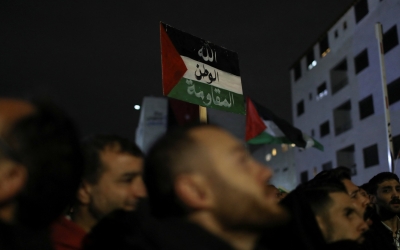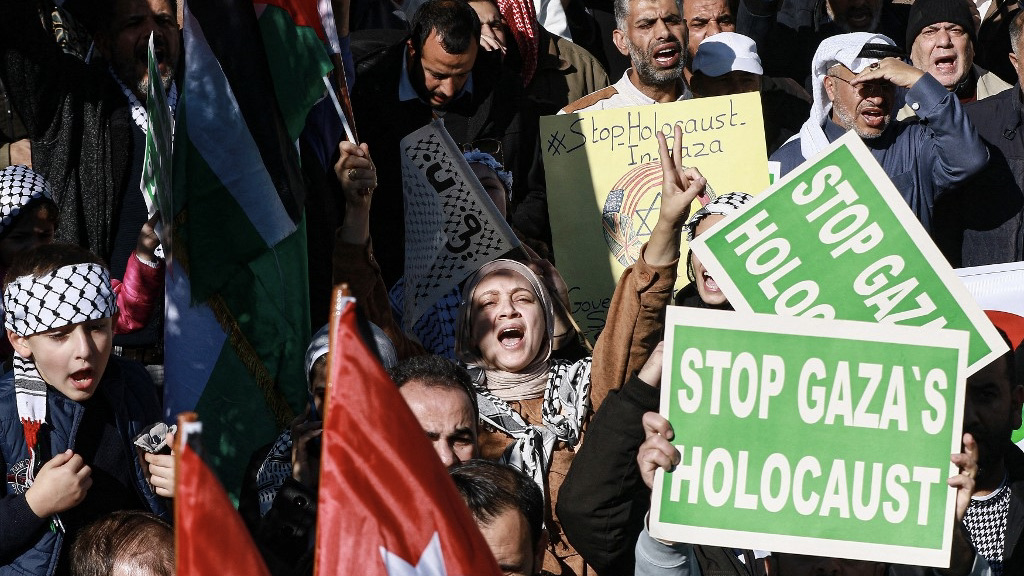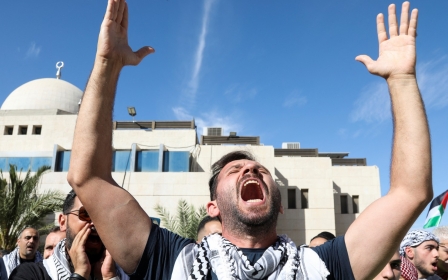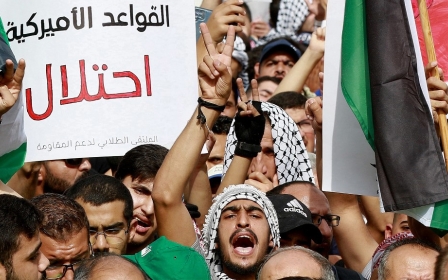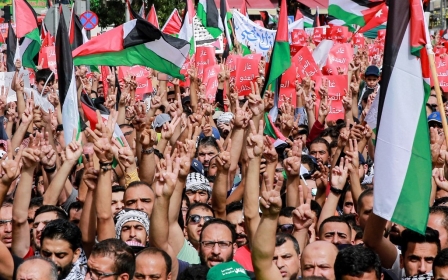Why it suits Jordan if everyone thinks it's on the brink
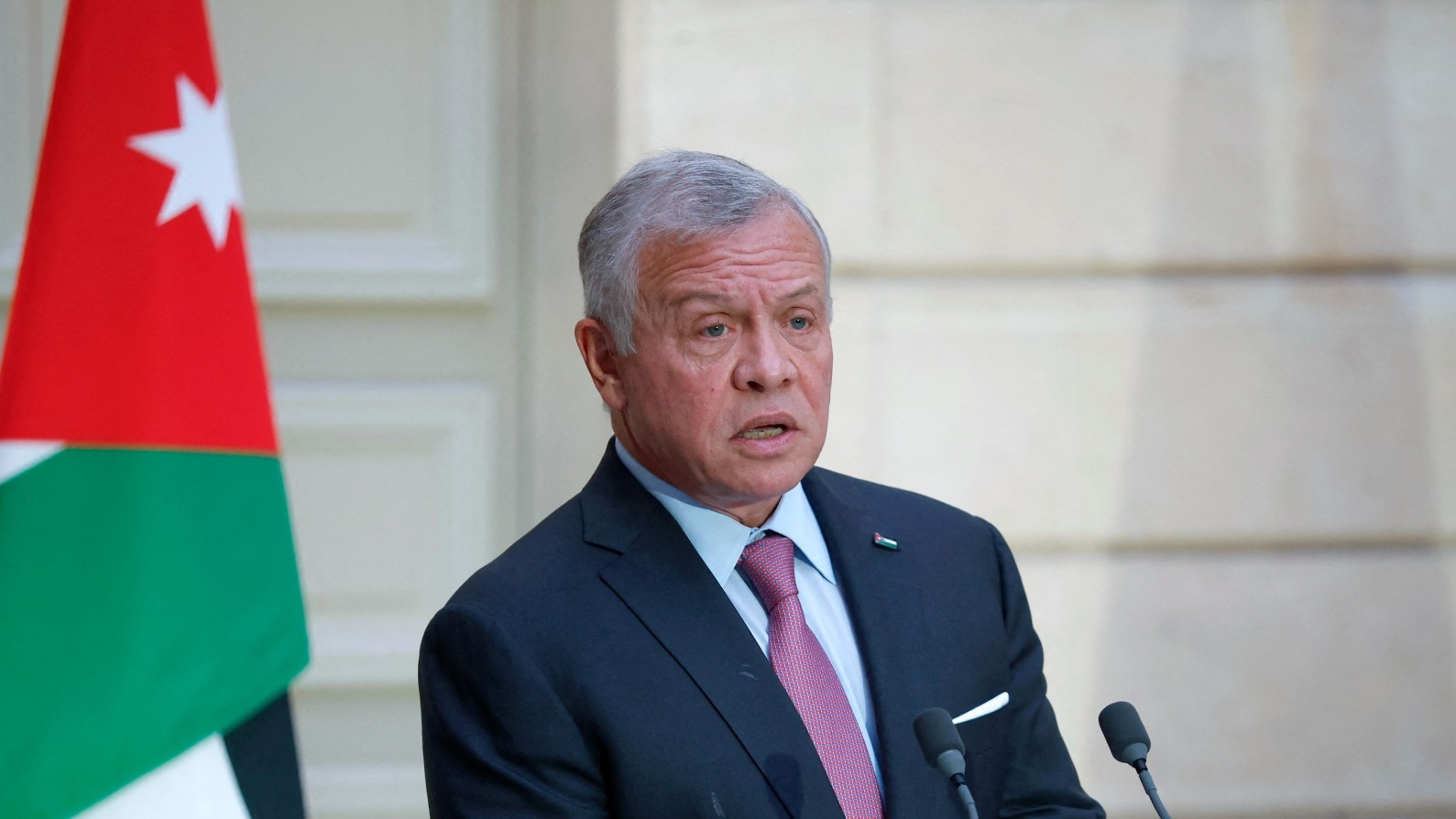
The Hashemite monarchs of Jordan are the Middle East’s perennial survivors.
Sandwiched between states that have seen horrendous wars, revolutions and civil unrest in recent decades, the Jordanian government has appeared remarkably durable and, by regional standards, stable. But times might be changing.
The ongoing war in Gaza has exacerbated what was already a tense domestic situation, prompting regular protests and government crackdowns.
Meanwhile, there is a growing risk of Jordan being sucked into Iran’s conflict with Israel. In April, Jordanian forces joined western militaries in shooting down Iran’s drone attack on Israel while in May officials foiled a Tehran-led plot to smuggle weapons into Jordan to arm the domestic opposition.
In this context, should Washington and other allies be concerned about Jordan’s future?
New MEE newsletter: Jerusalem Dispatch
Sign up to get the latest insights and analysis on Israel-Palestine, alongside Turkey Unpacked and other MEE newsletters
Even before the Gaza war, the domestic picture did not look good. Unemployment was at 22 percent, and even higher amongst young people, while 27 percent lived in poverty.
Though Jordan is a less vicious dictatorship than some of its neighbours, power remains concentrated in the hands of the king, Abdullah II, not the toothless elected parliament, and his governments have repeatedly failed to satisfy demands for economic improvement and better governance.
Jordan and Israel
Jordan has a long history of public protests and had already suffered a series of strikes and demonstrations in the run-up to 7 October. With well over half the population believed to be descended from Palestinians, including over two million registered refugees, Israel’s retaliatory attacks on Gaza prompted another wave of angry demonstrations.
Though protests were initially directed at Israel alone, often centred on Israel’s Amman embassy, in recent months the Jordanian government has also been targeted.
Protesters’ demands include Amman ending the peace deal it signed with Israel in 1994, halting trade, and ceasing all water and energy cooperation.
Jordan’s decision to join efforts to shoot down Iranian drones aimed at Israel - making it the only Arab state that openly did so - only added to accusations that Amman was "colluding" with Israeli Prime Minister Benjamin Netanyahu.
Regional developments have compounded these domestic tensions. Jordan fears it could end up in the firing line as the Israeli-Iranian conflict heats up.
Before Iran fired drones over Jordanian airspace en route to Israel, which Jordan says it shot down to protect its sovereignty rather than Israel, in January Iranian-aligned militia attacked a US base in Jordan, Tower 22, prompting reprisals from Washington.
In April, Kataib Hezbollah, an Iraqi armed group backed by Iran, threatened to send rockets and arms to 12,000 Jordanian fighters to use against Israel. Some Muslim Brotherhood members within Jordan’s opposition movement, sympathetic to Hamas, are believed to be the target of these proposed deliveries.
In this context, Tehran’s failed attempt in May to send arms via allies into Jordan underlines Amman’s fears of becoming a new battleground in the Iranian-Israeli shadow war.
This, understandably, has also alarmed Jordan’s allies, prompting the US and Saudi Arabia, amongst others, to offer support.
The Saudi crown prince, Mohammed bin Salman, has offered support for Jordan’s crackdowns on protesters while regional media aligned with Saudi Arabia has criticised the anti-government protesters in Jordan, depicting them as Islamists who are opening the door to Iranian influence.
Likewise, the US has underlined its commitment to Jordan throughout the Gaza crisis, ensuring the flow of vital aid to Amman and hosting regular meetings with King Abdullah.
Walking a careful line
However, some caution is needed. While these developments are unsettling for the Hashemite monarchs, for now, they look far from fatal. The protest movement is vocal but currently looks a long way from a movement that could topple the regime, or even want to.
Whether Iran actually harbours ambitions to destabilise Jordan, as some claim, is unclear, and this may just be opportunistic mischief-making rather than a long-term strategic plan.
Moreover, even if it did want to seriously disrupt Jordan, Iran currently lacks anything close to the networks it enjoys in Iraq, Syria, and Lebanon. It would take years to build any comparative influence and, unlike in the states where it currently has allies, would face serious opposition from the relatively strong Jordanian security services at every step.
Moreover, Jordan is no stranger to crisis and has survived far more threatening challenges in the past than the ones it currently faces.
Ever since the state was formed by the British in 1921, observers have predicted its demise given its precarious regional position, lack of natural resources and divisions within the population.
Yet the Hashemites have survived two wars with Israel, the anti-monarchy revolutions of the 1950s, the Black September civil war with Palestinian militants, a major diplomatic rupture with the US and Gulf states over the 1990-91 Kuwait crisis, and the 2011 Arab uprisings, amongst other troubles.
It has long been in the Jordanian government’s interests to emphasise the threats it faces to maximise aid from allies
While the current unrest may well escalate and present an existential threat, for now, Abdullah is probably confident that, as was the case in the past, the Jordanian regime will be able to walk a careful line balancing internal and external friends and enemies to survive.
Complicating the picture is that it has long been in the Jordanian government’s interests to emphasise the threats it faces to maximise aid from allies. Jordan is a poor state that is heavily dependent on foreign aid, not least from its largest donor, the US, which provides up to $1.65bn per year.
As Jillian Schwedler shows in her excellent book, Protesting Jordan, given its strategic importance to both the West and the Gulf, a Jordan "on the brink" is better placed to extract aid from allies.
While the protests and Iran’s interest in Jordan are certainly causing headaches in Amman, quite how threatening they are to Jordan’s ruling regime remains to be seen.
The views expressed in this article belong to the author and do not necessarily reflect the editorial policy of Middle East Eye.
This article is available in French on Middle East Eye French edition.
Middle East Eye delivers independent and unrivalled coverage and analysis of the Middle East, North Africa and beyond. To learn more about republishing this content and the associated fees, please fill out this form. More about MEE can be found here.



